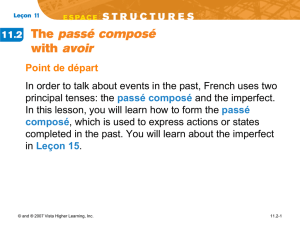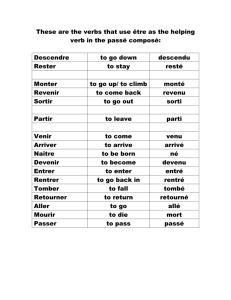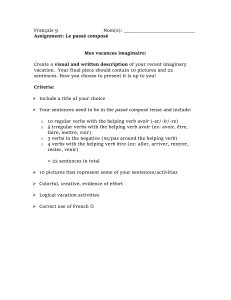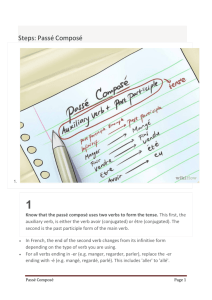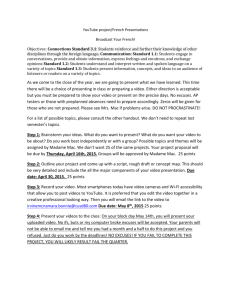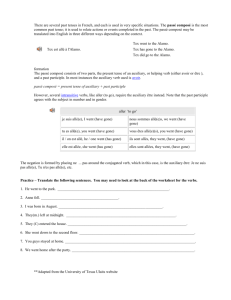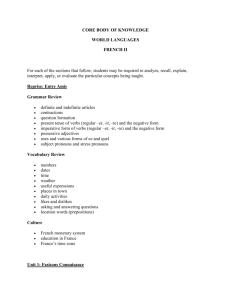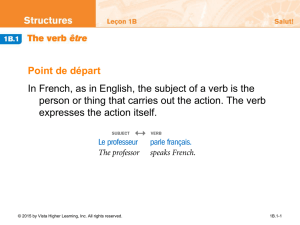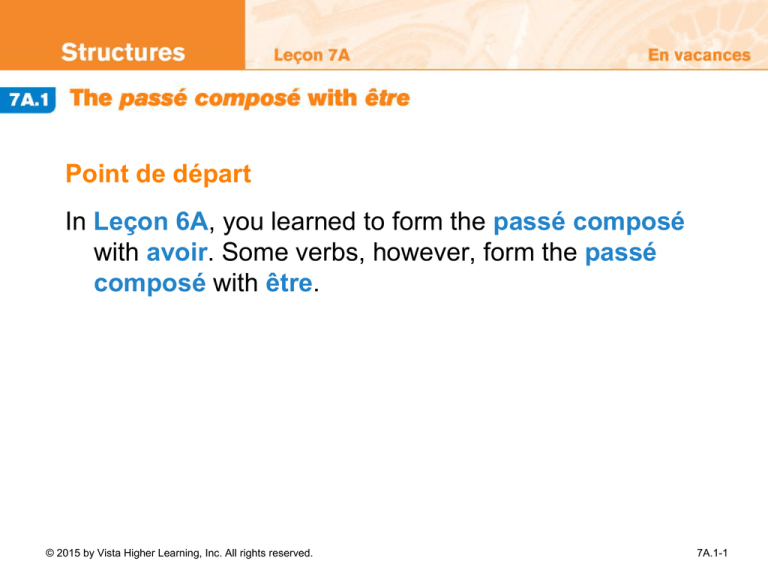
Point de départ
In Leçon 6A, you learned to form the passé composé
with avoir. Some verbs, however, form the passé
composé with être.
© 2015 by Vista Higher Learning, Inc. All rights reserved.
7A.1-1
To form the passé composé of these verbs, use a
present-tense form of être and the past participle of the
verb that expresses the action.
© 2015 by Vista Higher Learning, Inc. All rights reserved.
7A.1-2
Many of the verbs that take être in the passé composé,
involve motion. You have already learned a few of
them: aller, arriver, descendre, partir, passer,
rentrer, sortir, and tomber.
© 2015 by Vista Higher Learning, Inc. All rights reserved.
7A.1-3
The past participles of verbs conjugated with être agree
with their subjects in number and gender.
© 2015 by Vista Higher Learning, Inc. All rights reserved.
7A.1-4
To make a verb negative in the passé composé, place
ne/n’ and pas around the auxiliary verb, in this case,
être.
© 2015 by Vista Higher Learning, Inc. All rights reserved.
7A.1-5
Here are a few more verbs that take être instead of avoir
in the passé composé.
© 2015 by Vista Higher Learning, Inc. All rights reserved.
7A.1-6
Note that the verb passer takes être when it means
to pass by, but it takes avoir when it means to spend
time.
© 2015 by Vista Higher Learning, Inc. All rights reserved.
7A.1-7
To form a question using inversion in the passé
composé, invert the subject pronoun and the
conjugated form of être.
© 2015 by Vista Higher Learning, Inc. All rights reserved.
7A.1-8
Place short adverbs such as déjà, encore, bien, mal, and
beaucoup between the auxiliary verb être or pas and
the past participle.
© 2015 by Vista Higher Learning, Inc. All rights reserved.
7A.1-9
Essayez!
Choisissez le participe passé approprié.
1. Vous êtes (nés/né) en 1959, Monsieur?
2. Les élèves sont (partis/parti) le 2 juin.
3. Les filles sont (rentrées/rentrés) de vacances.
4. Simone de Beauvoir est-elle (mort/morte) en 1986?
5. Mes frères sont (sortis/sortie).
6. Paul n’est pas (resté/restée) chez sa grand-mère.
7. Tu es (arrivés/arrivée) avant dix heures, Sophie.
8. Jacqueline a (passée/passé) une semaine en Suisse.
© 2015 by Vista Higher Learning, Inc. All rights reserved.
7A.1-10

